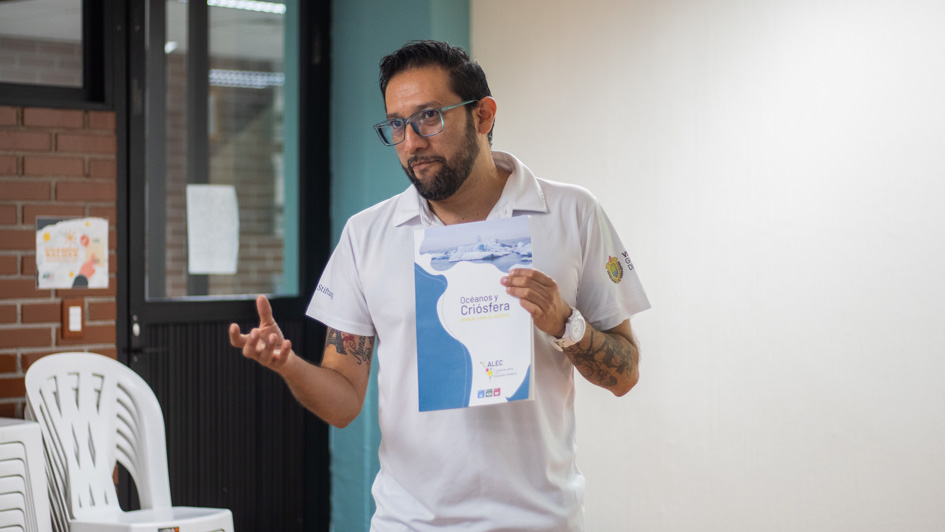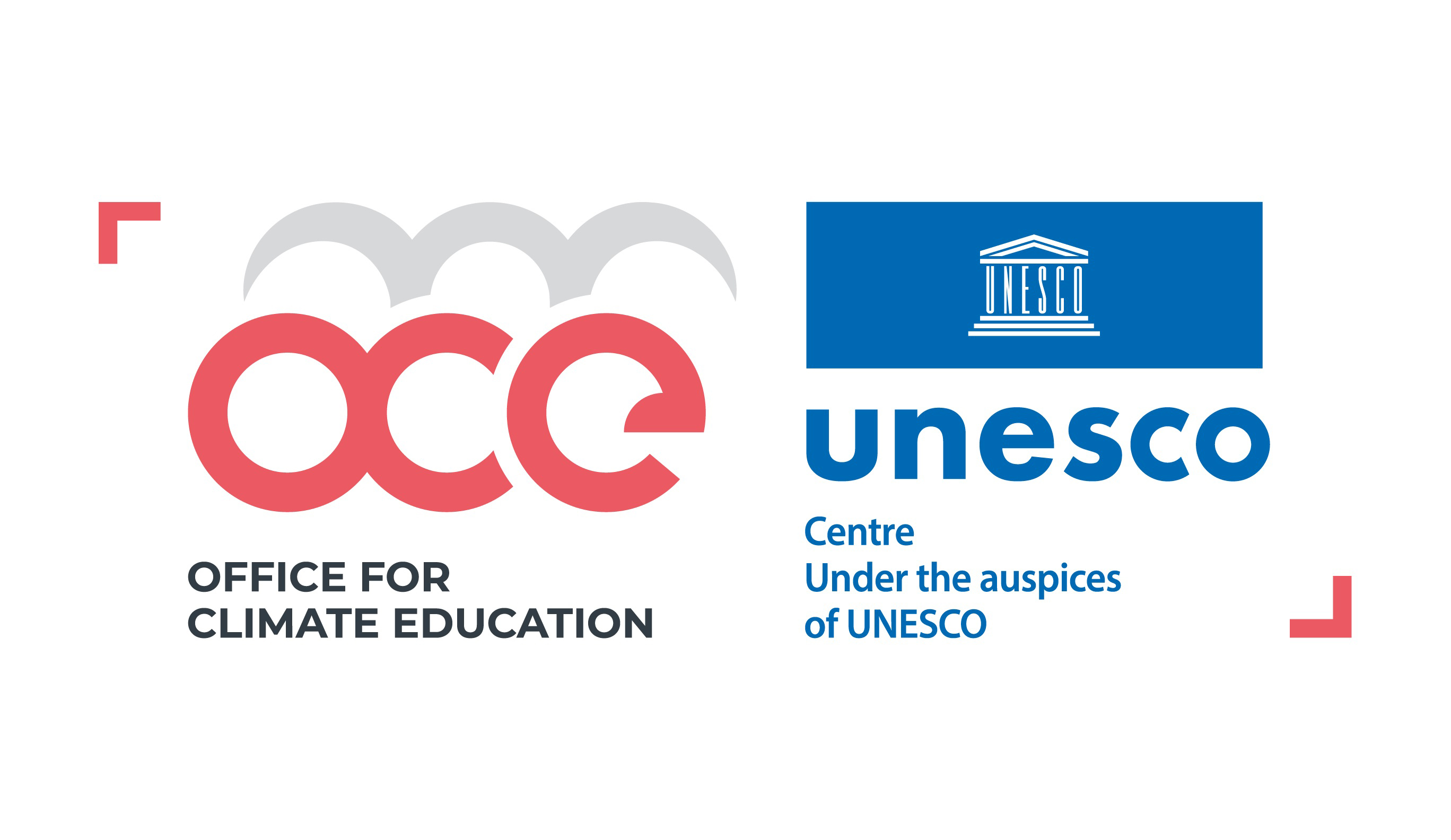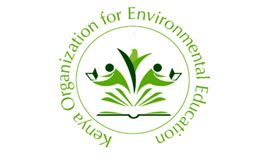Office for Climate Education
Initiative on International Climate Change Education
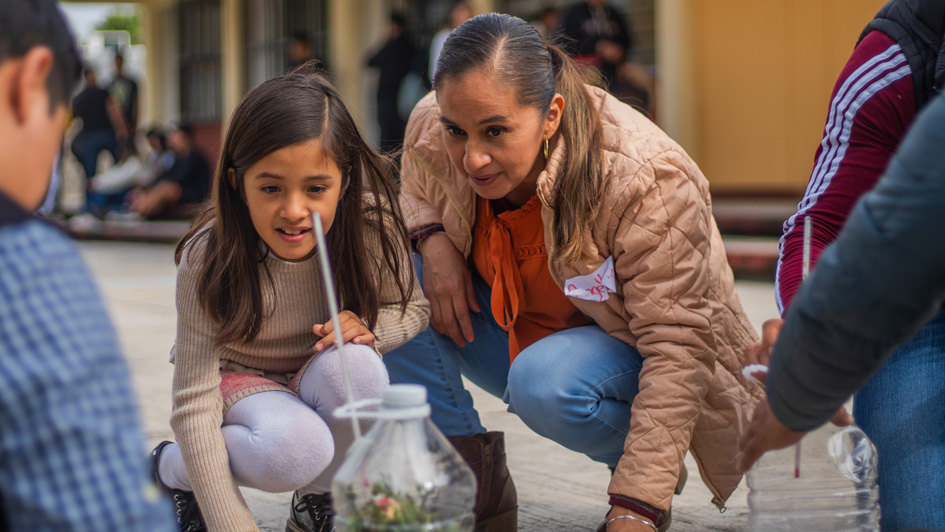
As a long-standing partner of the Office for Climate Education (OCE), we collaborate with international organizations and local partners to promote effective and equitable climate change education (CCE). At the heart of this are openly licensed, contextualized educational resources (OER) that can be used worldwide. These are complemented by teacher training, conferences, and networking opportunities that strengthen the capacity of educators, education practitioners, and policymakers. At the same time, we advocate at the strategic level for embedding CCE in curricula and education policies. In this way, we create learning spaces that empower communities to actively and proactively respond to the challenges of the climate crisis.
Initiative Alliance for education and climate action
Teachers around the world are faced with the major challenge of teaching the complex causes and consequences of climate change to students and balancing economic, ecological, and social aspects to demonstrate perspectives for action. The OCE aims to support them in this endeavor with a holistic approach. The international initiative offers scientifically based, multilingual and locally adaptable teaching materials in four languages (English, German, French, Spanish), as well as provides practice-oriented training courses and international exchange formats. In terms of content, the OCE is guided by the reports of the Intergovernmental Panel on Climate Change (IPCC), translating their findings into activating educational resources.
The OCE was founded in 2018 by several scientific institutions, among them the La main à la pâte (LAMAP) Foundation in Paris. The non-profit organization works globally with leading scientists, research institutes, and NGOs. Its designation as a UNESCO Category 2 Center underscores its worldwide importance for high-quality education.
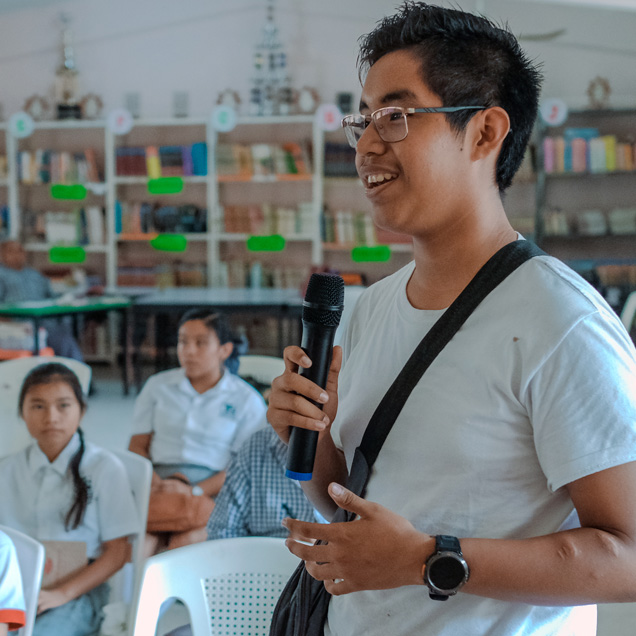
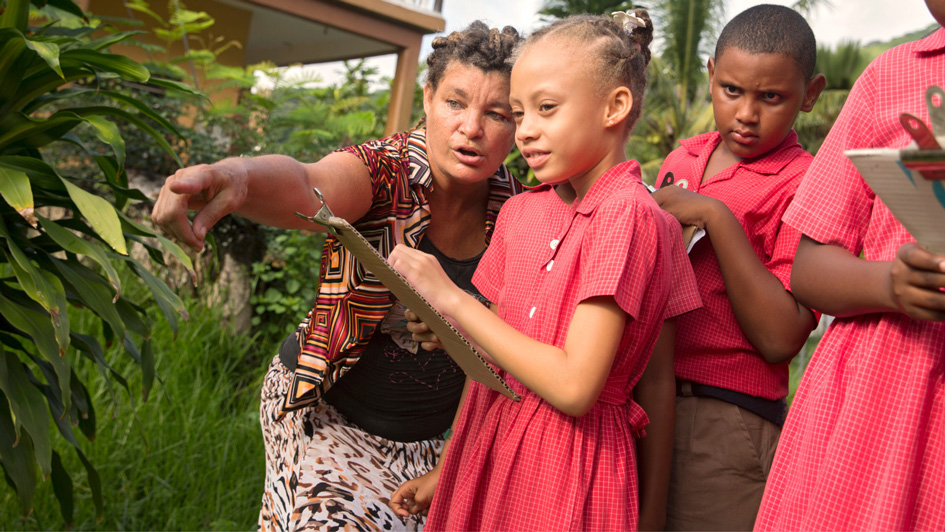
Climate change education was the focus of Climate Week NYC 2025.
Strategic Roundtable: “Unlocking the transformative power of climate change education: Investing in youth, teachers, and skills for a changing world.”
Our contribution Strengthening climate change education together
Siemens Stiftung has a seat on the OCE’s Strategic Committee and Scientific and Pedagogical Committee, where it contributes its expertise to the development of contextualized educational content and helps set relevant thematic priorities. Furthermore, it supports the institution financially. Together, we address the critical demand for climate change resilience, equitable access and inclusive knowledge dissemination, as contribution to strengthening global education structures in the context of the climate crisis.
Together, we pursue the goal of making education systems more resilient to the impacts of climate change, enabling equitable access to high-quality education, and fostering future-relevant skills worldwide. Through our international network, we promote the dissemination of the OCE materials and training modules and create spaces for exchange and cooperation. In particular, the STEM+ Territories, which emerged from our Red STEM Latinoamérica network, function as regional ecosystems where actors from different sectors collaborate on integrated educational concepts, develop local strategies for climate change education, and advance systemic solutions
Project implementation
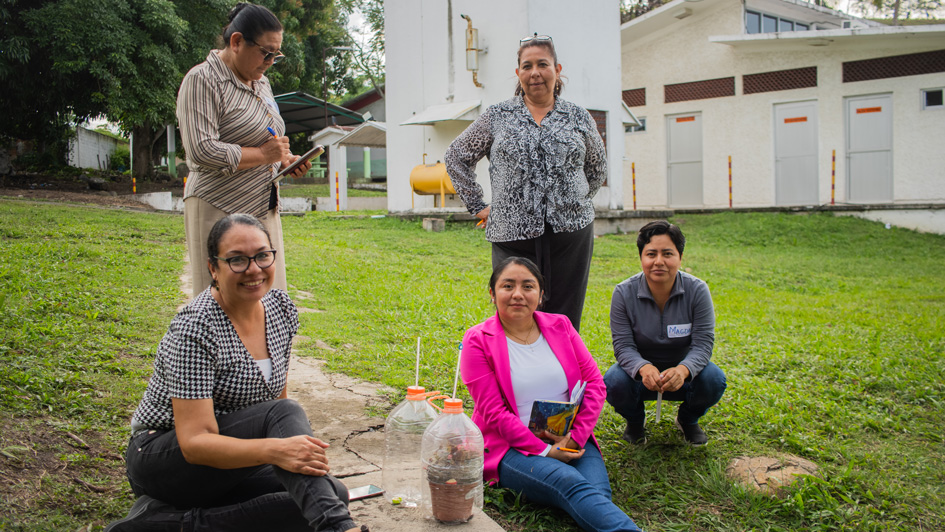
Teachers as changemakers
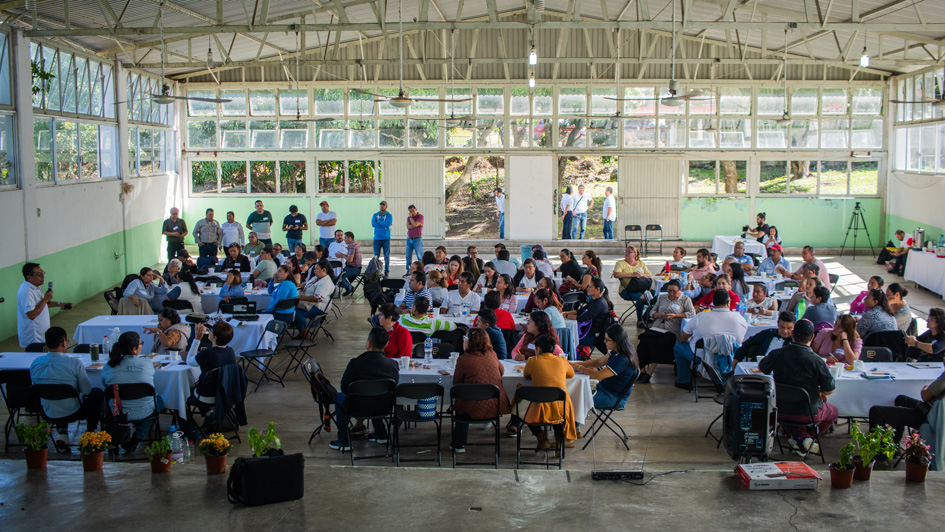
Shaping robust networks
Advancing CCE in Africa
Building on the success and experiences from Latin America, we are jointly taking best practices to Africa through Africa Regional Resilience Initiative on Climate Education (ARRICE). Financially supported among others by the French Facility for Global Environment (Fonds Français pour l’Environnement Mondial) and the French Development Agency, ARRICE is being implemented in Kenya, Mauritius, and Senegal – three countries which due to diversity and potential to serve as regional hubs for expanding CEE.
In Kenya, Siemens Stiftung is supporting the integration of climate change education into the country’s new competency-based curriculum. Working with the Kenya Organization for Environmental Education (KOEE), the Ministry of Education and the Kenya Institute of Curriculum Development systemically anchored educational offerings are being developed that address local challenges while making global interconnections visible.
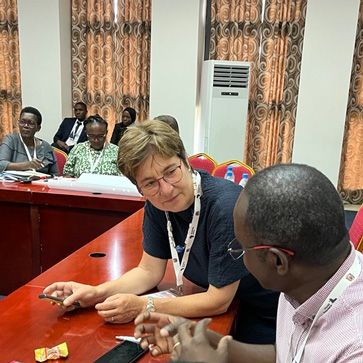
MediaTeaching materials on climate change
The Office for Climate Education’s materials are available as OER under Creative Commons license on the OCE website. Handouts for teachers, topic-specific websites, multimedia animations and videos explain the complex topic with different focuses.
Comprehensive materials are available on the following topics in particular:
- The Science of Climate Change
- Climate Change and Land
- Climate Change, Ocean and Cryosphere
- Climate Modelling in Class
- The Emotions of Climate Change (eco/climate anxiety)
- Climate Change and Critical Thinking
All materials were developed in collaboration with IPCC experts and are available in several languages: English, French, Spanish, and German.
Cooperations Committed members in a broad network
The Office for Climate Education relies on international cooperation with leading scientists, climate researchers, research institutes and NGOs. This global alliance ensures scientific quality, fosters innovation, and helps position climate change education as a central educational priority.
ContactTo learn more about the project, get in touch with:
Project Manager STEM + Climate
Badin Borde
badin.borde@siemens-stiftung.org
Project Manager Education Africa
Rebecca Ottmann
rebecca.ottmann@siemens-stiftung.org
Managing Director OCE
David Wilgenbus
david.wilgenbus@oce.global
LinksLearn more about the topics
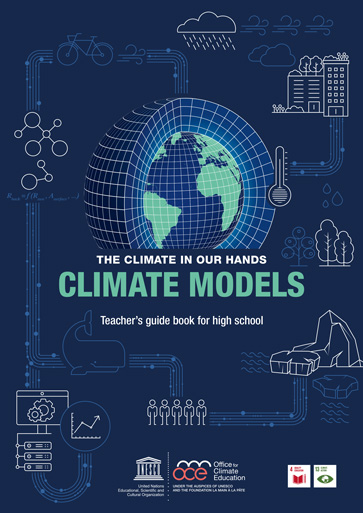
Climate Change: Climate Models
This resource allows us to explore how climate models work and their role in understanding and predicting climate change. Through activities and simulations, scientific thinking and critical reflection on environmental challenges are promoted. It provides teachers with practical activities, digital simulations and support materials to introduce the basic concepts of climate modelling into the classroom. The proposed approach promotes scientific literacy, collaborative work and critical reflection on the challenges of climate change.
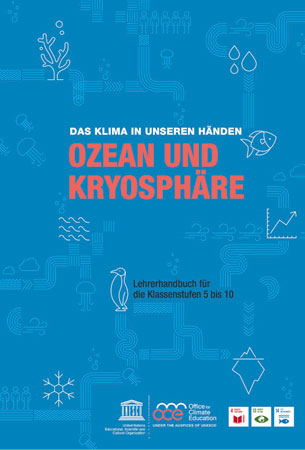
The climate in our hands –
Ocean and Cryosphere (2021)
The first teacher’s guide book from the collection “The climate in our hands”, a series of volumes on climate change, has been researched and written by the OCE team and the OCE’s scientific and education partners. The multidisciplinary guide is aimed at primary and middle school teachers (target: students aged 9 to 15) and offers turnkey sessions based on the investigative approach to help students understand climate change and the functioning of the oceans and cryosphere, through experiments or document analysis. It concludes with proposals for mitigation or adaptation measures to be implemented in their schools or communities. Available in English, French, German, and Spanish.
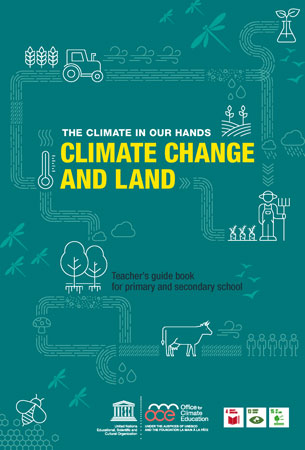
The climate in our hands –
Climate Change and Land (2022)
“Climate Change and Land” is the second teacher’s guide book from the collection “The climate in our hands”, a series of volumes on climate change. This multidisciplinary guide is aimed at primary and middle school teachers (target: students aged 9 to 15) and offers turnkey sessions based on the investigative approach to help students understand climate change and the functioning of the land, through experiments or document analysis. It concludes with proposals for mitigation or adaptation measures to be implemented in their schools or communities. Currently available in English, French and Spanish. A German version is in the making.



